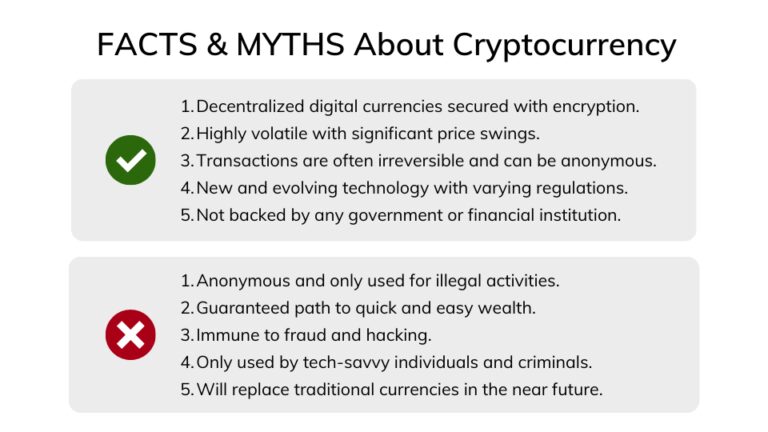Dive into the cutting-edge world of cryptocurrency and discover how it’s poised to revolutionize cross-border trade in 2024. This blog will enlighten you on the influence of cryptocurrency on global business operations, transactions, and the promising growth opportunities it offers.

The digital world has been revolutionized with the advent of cryptocurrencies, altering how we conduct business and transactions today. This section delves into the concept of cryptocurrencies, their brief history, how they operate, and the associated pros and cons when used in cross-border trade.
The concept of cryptocurrencies was birthed in 2008, with Bitcoin being the pioneering digital currency introduced by an anonymous entity known as Satoshi Nakamoto. These digital currencies were designed to provide a decentralized form of payment system, free from control of any central bank or government body. Since then, there has been an explosion of various cryptocurrencies with different applications and technological foundations, creating a new age of digital economy.
Cryptocurrencies operate on a technology called blockchain, a decentralized system that records transactions across numerous computers. The security of these transactions is enhanced through cryptographic methods, hence the name cryptocurrency. Each transaction is recorded on a ‘block’ and each block is linked to the preceding block, forming a chain of blocks or ‘blockchain’. This process ensures transparency, immutability, and security of the transactions.
Utilizing cryptocurrencies in cross-border trade comes with its unique set of advantages. It offers faster transaction times, eliminating the delay usually experienced in conventional banking systems. With cryptocurrencies, exchange rate issues are also mitigated providing economic efficiencies. Moreover, their decentralized nature provides a level of security against currency manipulation by central banks.
Despite these benefits, some challenges also exist. Cryptocurrencies are infamous for their volatility, making them a risky choice for traders. Additionally, the regulatory landscape for cryptocurrencies is still uncertain in many countries, posing legal and compliance risks. Lastly, the degree of anonymity that cryptocurrencies offer can be potentially exploited for illegal activities.
Interestingly, cryptocurrencies have found use cases beyond simply being a medium of exchange. For instance, in the online gaming world, top crypto casinos leverage these digital currencies for their operations. You can learn more about this by reading our article on Understanding the Role of Top Crypto Casinos in Trade.
Cryptocurrencies have dramatically reshaped the dynamics of cross-border trade, offering unique benefits that conventional financial systems struggle to provide. They simplify cross-border payments, overcome exchange rate issues, and significantly reduce transaction costs and time.
The first cryptocurrency, Bitcoin, was initially designed as a peer-to-peer electronic cash system, enabling direct, online transfers of digital cash. This vision has been actualized, not just with Bitcoin, but with many other cryptocurrencies as well. Today’s blockchain-based technologies allow for immediate, direct transfers across borders, bypassing the traditional banking systems and intermediaries that often complicate and delay such transactions. In this way, cryptocurrencies have simplified cross-border payments, making it easier for businesses and individuals to engage in international trade.
Another major advantage of cryptocurrencies in cross-border trade lies in their potential to mitigate the challenge of exchange rates. With traditional currencies, businesses need to continually monitor and manage the risks associated with fluctuating exchange rates. A sudden swing in the currency markets can significantly impact the profitability of a transaction. However, cryptocurrencies, being globally recognized units of value, eliminate this issue. By using cryptocurrencies like Ethereum and Tether, traders can avoid the hassle and reduce the uncertainties of exchange rate fluctuations.
For more insight, consider exploring Using Ethereum and Tether in Casino Choices for Better Trade.
Cryptocurrencies also offer significant efficiency gains in terms of cost and time. Traditional cross-border transactions often involve multiple intermediaries, from correspondent banks to clearing houses, each taking a fee and adding time to the process. These transactions can take days to finalize at a significant cost. In contrast, a cryptocurrency transaction can be done directly between parties, with the transaction being verified by the blockchain network within minutes, at a fraction of the cost.
Overall, the role of cryptocurrencies in facilitating cross-border trade is significant. By simplifying payments, overcoming exchange rate issues, and reducing transaction costs and time, they offer a compelling alternative to traditional methods of trade. As technology evolves and adoption of cryptocurrencies grows, their role in international trade is likely to increase even further.

As with any disruptive technology, not all cryptocurrencies are created equal. Some have swiftly emerged as market leaders due to their inherent advantages, adoption rates, and overall africability in the financial and commercial landscapes. Let’s delve into some of the prominent cryptocurrencies used in cross-border trade.
Bitcoin, the trailblazer of the cryptocurrency realm, maintains its status as the most widely traded and recognized cryptocurrency. Given its wide acceptance, liquidity, and robust security, Bitcoin is widely utilized for cross-border transactions. It operates beyond the control of a centralized authority, ensuring transactions are smooth, quick, and relatively affordable. Bitcoin’s inherent qualities position it as an effective tool for facilitating international trade.
Following closely behind Bitcoin, Ethereum has gained substantial ground in the cryptocurrency world. Ethereum’s defining feature, smart contracts, brings about a monumental shift in the way businesses conduct transactions. These programmable contracts execute themselves upon meeting the agreed terms, eliminating the need for a middleman. This results in quicker, safer, and more transparent transactions, making Ethereum a game-changer in cross-border trade.
While Bitcoin and Ethereum may hog the cryptocurrency limelight, there are numerous other cryptocurrencies, known as altcoins, that play pivotal roles in cross-border trade. Altcoins such as Litecoin, Ripple and Stellar have gained notoriety for their specific advantages. Whether it’s Litecoin’s faster transaction speeds, Ripple’s payment protocol that aids real-time international transactions, or Stellar’s focus on cross-border transfers, these altcoins provide viable solutions to the challenges of global trade.
For instance, the adoption of altcoins has been instrumental in the gaming industry, and can be seen extensively in their use in online casinos. Cryptocurrencies offer a secure and user-friendly option for international players, making casino games globally accessible. By
maximizing wins with crypto roulette in cross-border trade, for example, players can enjoy a smooth and potentially profitable gaming experience, further reinforcing the importance of cryptocurrency in this global industry.
In conclusion, Bitcoin, Ethereum, and other notable altcoins have revolutionized the way businesses conduct cross-border transactions. With their unique features and adaptability, these cryptocurrencies continue to redefine the contours of international trade.

In this section, we will examine various case studies of enterprises which are incorporating cryptocurrencies to facilitate their cross-border trade transactions effectively. We will primarily focus on companies from the gaming and sports betting industry, offering a broader understanding of how these digital assets are revolutionizing various sectors globally.
Bitsler and MyStake are leading gaming companies that were among the first to embrace cryptocurrencies for business transactions. Bitsler takes pride in offering over 20 different cryptocurrencies for trade, making it possible for gamers worldwide to transact freely without worries about currency exchange rates or high transaction costs. On the other hand, MyStake’s users enjoy a seamless gaming experience as they can make deposits and withdrawals in numerous different cryptocurrencies.
By integrating cryptocurrencies in their operations, both Bitsler and MyStake have widened their reach to global markets, eliminating the geographical boundaries that typically hinder international trade. For more insight on this subject matter, consider Adopting Winning Crypto Slots Tips for Successful Trade on our blog.
Sportsbet.io and 22bet are making their mark in the sports betting industry by facilitating cryptocurrency betting. Sportsbet.io is renowned for supporting bitcoin transactions, which has enabled it to offer fast, secure, and anonymous betting services across the globe. Similarly, 22bet allows users to bet with bitcoin and other popular cryptocurrencies, which has contributed to its monumental growth.
By adopting cryptocurrencies, these companies have managed to reduce their operational costs significantly and transfer these savings to their customers through lower transaction charges, thus enhancing customer satisfaction. For a deep dive into how they have achieved this, make sure to check out our article, Adopting Winning Crypto Slots Tips for Successful Trade.
Roobet and BC GAME are forward-thinking companies that have exclusively built their platforms around cryptocurrency gambling. They have enabled gamblers worldwide to carry out transactions using multiple cryptocurrencies, fostering a seamless gambling experience.
By leveraging on crypto coins, these platforms are not only simplifying transactions but also attracting a global audience. Consequently, they are bolstering cross-border trade while enhancing the adoption of cryptocurrencies in the gaming industry. Interested in knowing more? Take a look at our blog post – Adopting Winning Crypto Slots Tips for Successful Trade.

The use of digital currencies in cross-border trade has been a hot topic, with diverse views from regulatory bodies, governments, and global players. Despite the ongoing challenges, it’s essential to keep abreast with the current regulatory landscape, identify any potential legal risks, and anticipate the future of cryptocurrency regulation in trade.
As an emergent technology, cryptocurrency is yet to be fully understood and therefore regulated across nations. Some countries have embraced it, seeing it as the future of finance, while others have imposed restrictions or outright bans, citing volatility, potential use in illicit activities, or threats to traditional monetary systems. In general, the regulatory landscape is fragmented and inconsistent across regions. Different countries categorize cryptocurrencies as either commodities, securities, currencies, or a unique asset class, each attracting different regulations. The varying definition underscores the ambiguity surrounding cryptocurrencies.
Using cryptocurrencies in cross-border trade could present certain legal risks, including non-compliance with Anti-Money Laundering (AML) and Know Your Customer (KYC) regulations, potential violations of economic sanctions, and exposure to frauds and scams due to the irreversible nature of crypto transactions.
The future of cryptocurrency regulation is uncertain to some extent; however, some trends indicate a possible direction. Emerging regulatory frameworks for cryptocurrencies, such as the European Union’s Proposed Markets in Crypto-assets (MiCA), suggest a move towards more uniform and comprehensive cryptocurrency regulations. Other countries, like Japan, Estonia, and Switzerland, have already created regulatory sandboxes or distinct legal frameworks around cryptocurrencies.
Crucially, the future may also involve formulating international standards for cryptocurrency regulations in cross-border trade. International standard-setting bodies, such as the Financial Action Task Force (FATF), anticipate stricter AML measures globally for cryptocurrencies. The aim is to create a balanced regulatory framework that can facilitate the growth of cryptocurrency technology without jeopardizing financial integrity or enabling illicit activities.
Businesses that anticipate and adapt to changing regulatory environments will likely be more resilient and successful in their ventures into cryptocurrency-enhanced cross-border trade.

